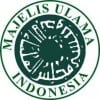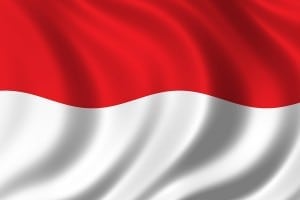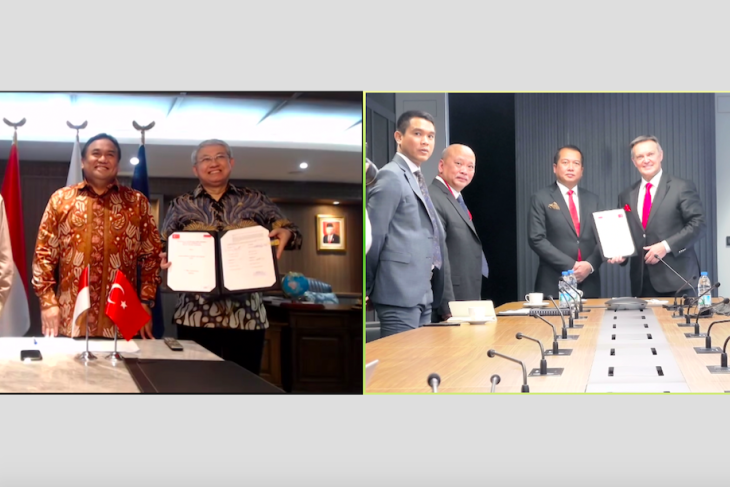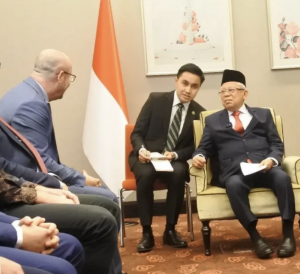American Chamber of Commerce in Indonesia
In one of its final actions before its term ended, Indonesia’s House of Representatives (DPR) passed the law on halal product certification in September. It is the first law on halal labeling in the Muslim majority nation.
 While the Indonesian Council of Ulema (MUI) welcomed the new law, saying that it would give comfort to the Muslim community, both the foreign and local business community appeared anxious over whether it would mean extra costs for them to secure the correct halal certification.
While the Indonesian Council of Ulema (MUI) welcomed the new law, saying that it would give comfort to the Muslim community, both the foreign and local business community appeared anxious over whether it would mean extra costs for them to secure the correct halal certification.
“We see this as very positive. For Muslims, we can be assured that when we consume certain food and beverage products, they are truly halal,” said Hasanuddin AF, chairman of the MUI Fatwa Commission.
“All this time, halal labeling was not an obligation, it remained voluntary for producers of food and beverages, drugs or cosmetics to show their good intentions to their [Muslim] consumers. Now the law gives us protection,” he said.
Hasanuddin said that he believed the law should not be a burden to the business community. Instead, he hopes that Indonesia will set a new benchmark for Halal labeling. Despite about 87 percent of Indonesia’s 250 million people being Muslim, Indonesia is deemed by some to lag behind nearby Malaysia, in the halal food industry.
Indonesia’s Muslim majority neighbor, which has a population of nearly 30 million, has been able to push through international acknowledgement of its halal certification, thus spurring a halal food industry that generates billions of dollars from manufacturing and packaging to distribution and financial services.
Who will be affected?
The Halal labeling law will affect most consumable products, including food and beverages, medicines, cosmetics, chemicals and biological products.
It will also apply to functional goods that can be worn, used, utilized, imported and circulated in Indonesia’s territory.
Under Islamic law, some materials are considered haram (forbidden, the opposite of halal) for consumption, including pork, alcohol, blood and other things considered as containing impurities. The law was enacted to protect the nation’s Muslim population from being exposed to non-halal products.
The new law states that halal checking will also include the manufacturing process, packaging, distribution, sales and serving. Muslims need to ensure that halal products are not mixed with non-halal products during production and distribution.
Non-halal products circulated in Southeast Asia’s largest economy must be labeled “non-halal.”
Previously, halal certification was supervised by the MUI. However, the new law now mandates the establishment of a new agency, the Halal Product Guarantee Agency, known as BPJPH. This agency, which will be supervised by the Ministry of Religious Affairs, will be responsible for issuing halal certificates to producers.
Implementation
The September law mandates the establishment of BPJPH within three years of the law being enacted. In the meantime, MUI is still the authorized halal certificate issuer.
Although the BPJPH will issue the certificates, the halal verification process will be handed over to a third party called the Halal Inspection Institution, known as LPH, which will go out into the field to check on the processing of raw materials inside or outside of the manufacturing facilities.
It will also check the composition of raw materials, and the government has set a requirement that it must employ at least three inspectors, operate its own laboratory or use other certified parties that have laboratories to support the halal check for products.
The government is also required to issue a regulation to further regulate the LPH.
Hasanuddin said there will also be an agency that audits the halal certificates, and that MUI will play an important role in passing judgment over halal and haram definitions.
According to the new law, the government is required to issue the implementing regulations within two years and effectively implement the law within five years after it was enacted. This means that by 2019, halal labeling will be mandatory for all products circulated in Indonesia.
The law also said it will acknowledge products from overseas that have halal certificates, but it is not automatically granted as there must be cooperation in place between Indonesia and the foreign government from where the product originates.
Under the new law, a halal certificate, once secured, is valid for four years, and subject to extensions.
Business prefers the old system
However, not everyone is happy about the new law. Much of the business community – both domestic and foreign – has said it prefers the previous, voluntary labeling system.
In a note published on November. 4, the European Union’s Delegation to Indonesia, Brunei Darussalam and ASEAN, said that should the law be implemented “in the same spirit as its far-reaching provisions, it will no doubt put in place one of the most extensive and draconian halal regimes of any country.
“At first glance, the law would not appear to be in contradiction to Indonesia’s WTO [World Trade Organization] obligations. It applies to domestic companies in the same way as it does to imported goods and is therefore non-discriminatory. However, the impact will be more negative for imported products,” the EU note said.
The note highlighted the potential complications and prolonged process over verification and audits due to the different locations of production facilities in the country of origin.
“The obligation for storage and distribution [including potentially even the shipment containers] to also be covered in the Halal Product Process would add substantially to the costs for producing and exporting the products to Indonesia,” the note said.
“This could imply unnecessary trade barriers with distortive effects on imports.”
The local business community has also expressed its concerns. On Sept. 30, Franky Sibarani, in his capacity as the secretary general for the Indonesian Food and Beverage Association (Gapmmi), said the law could potentially place unnecessary burdens on small and medium sized enterprises. Franky has since been appointed chairman of the Indonesia Investment Coordinating Board (BKPM).
“The business community is sticking to its stance to refuse the mandatory policy [for halal certification], even though it will only be implemented by 2019,” Franky told local media as head of Gapmmi.
He said that the cost of getting a certificate from the MUI is currently about Rp 2 million. Should the procedure under the new law be fully implemented, small businesses may be over-burdened if they are forced to pay for the examination of their raw materials that are imported from overseas.
“We will learn further, as to how far this law could potentially contradict other laws, like the law on product standardization, the law on consumer protection. We will discuss it with other industries and the related ministries,” he said at the time.
In his new role at BKPM, Franky has yet to make any further statements on the halal law.
The sanctions are also firm for those breaching the law. The law stipulates jail time of up to five years and a maximum penalty of Rp 2 billion for companies that violate the law.
The law also says that officials at LPH will maintain complete confidentiality of information about any formulas of products they examine. Failing to satisfy hat mandate will be subject to a possible two years imprisonment and a maximum Rp 2 billion fine.



